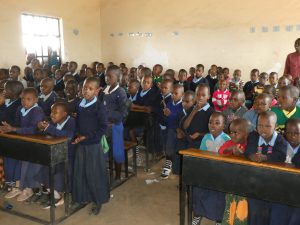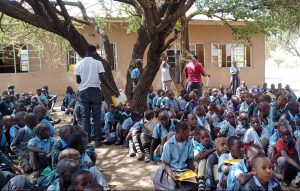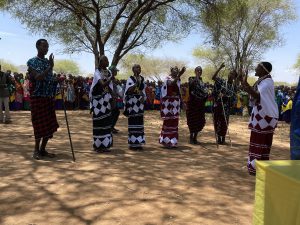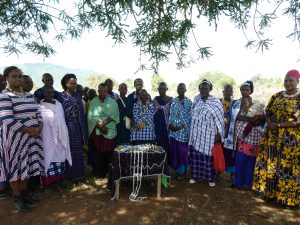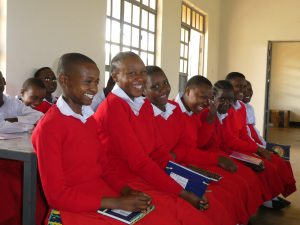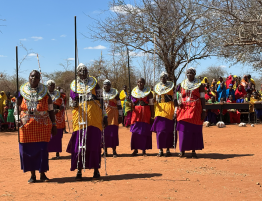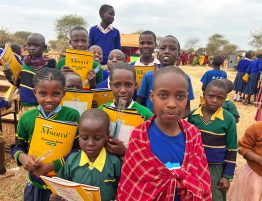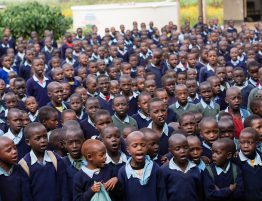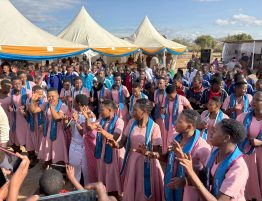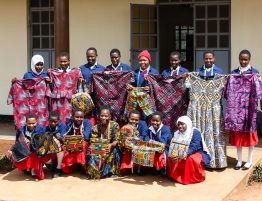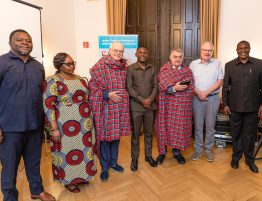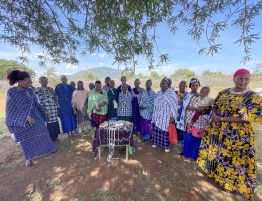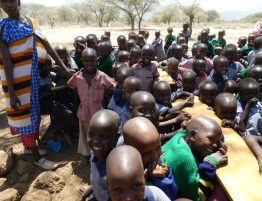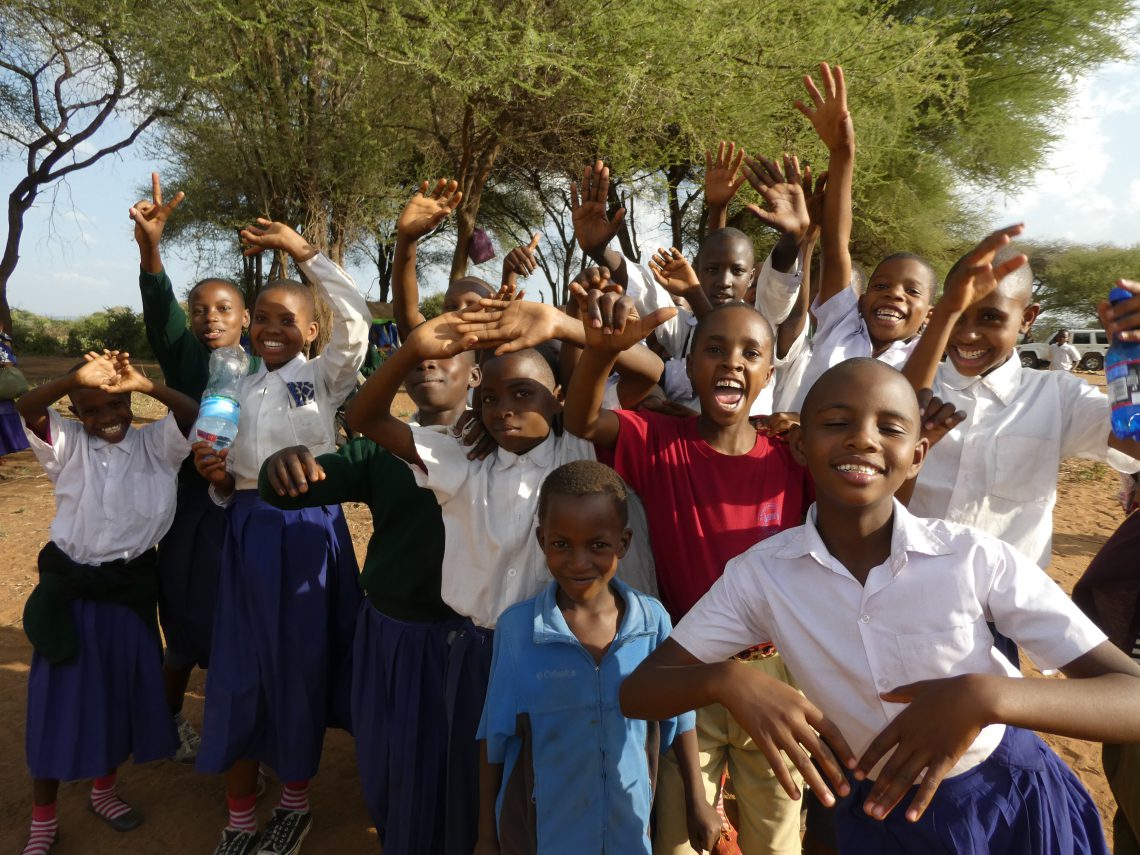
In the meantime, ECLAT and upendo have been involved in development projects in northern Tanzania for several years. Therefore, in this information letter, we would like to ask ourselves whether our commitment is bearing fruit and what has perhaps already been achieved.
Community development support
With our upendo work we want to promote the development of a traditional and economically disadvantaged society in Tanzania. The goal is therefore to promote social development rather than the advancement of individuals. That is why we are particularly active in such fields as school education, women’s work or family planning. The basis of any development is education: without education, without schools, all efforts towards social development run into the void. Together with our Tanzanian partner organization ECLAT, we would hence like to achieve development at the community level in the Maasai ethnic group, primarily through better education. In Tanzania, the communities have to build their own schools; the state will then take over and operate them. Poor communities, however, are not in a position to finance school buildings, even if they would like to. As a result, these communities are increasingly cut off from the general development of the country. By building schools, for which the state then assumes responsibility, we can provide schooling for many children who would otherwise have remained illiterate like their parents.
Primary education
Since our founding in 2014, upendo has been committed to building schools primarily in Maasai land in Simanjiro and neighboring districts, whether it involves the expansion, new construction, or urgent renovation of primary schools. To date, we have rebuilt, expanded or newly constructed a total of nearly 40 primary schools, although some of the new schools still need to be completed. We estimate that this has enabled around 25,000 children to (better) attend school.
And what has been the social impact of our commitment? The August 2022 census allows for a more accurate statistical evaluation. For one thing, the population of Simanjiro District has more or less doubled since the last census in 2002 rising to a good 290,000 people. This, of course, particularly applies to the number of children. According to the district administration’s evaluation the proportion of the school age children who were not in school in 2022 was 28%. Just a few years ago, the figure was estimated to be at least 70%. Our regular visits to the schools also confirm this trend: the number of children in one classroom continues to increase at an alarming rate: initially we were appalled to see 60 or 70 children in a classroom, nowadays we often find 100 children or more in a room. The reasons for the considerably better school attendance are manifold and not only due to our engagement, but our engagement has been able to contribute recognizably.
The figures acknowledge our work and give us hope. At the same time, however, they encourage not to slacken our efforts. For not all children go to school yet and the existing schools are far too overcrowded. Only when all of the Maasai’s many children receive schooling will these children pass on the value of education to the next generation some day and they will strive to ensure that children have real opportunities for a better life than that of their ancestors.
Secondary education
In recent years, a good deal has also happened in Simanjiro in regard to secondary education, because ECLAT and upendo have also been committed to it right from the start.
The secondary school we built in Emboreet over a period of several years now teaches a good 1,000 children, although the school was initially planned for just 320 children. The school is well equipped with science classrooms, a library and a computer center, and the academic success of the students is good. The school was the first in the entire district to lead to A-level (“Abitur”). Only in the past year two other secondary schools have begun offering upper-level classes.
And in the vocational training center which we built in recent years, the state (VETA) now also provides young people with vocational training.
Women’s work
The results of ECLAT’s women’s work cannot be summarized in simple numbers, but they can be seen: women’s groups meet everywhere today, they have and earn their own income, they meet with guests from Europe and simply send away the men present to discuss sensitive women’s issues, and be it the village or ECLAT chairman. All this would have been unthinkable in the early years of our work. I will not forget how, at my first meeting with a women’s group, the same number of sceptical men sat next to us, suspiciously following every discussion and in the end asking us to form men’s groups instead.
The topic of family planning, which is naturally closer to women than to the Maasai men who boast of having large numbers of children, has also found its way into ECLAT’s women’s work through the seminars at the women’s center. The women ask for it because they hardly manage to feed and care for their many children. Since the beginning of last year, this has given rise to ECLAT’s family planning campaign for men. Since then, many thousands of women have received contraceptive advice and treatment from the health stations. However, it is still too early for a statistical evaluation of the social impact of these activities.
And our latest project for the promotion of teenage girls also stems from our efforts in school education and women’s work. It aims to give girls who do not qualify for further schooling after completing primary school (standard 7) an alternative to early forced marriage. In a two-year course, they are taught the knowledge and skills that will enable them to become more independent later in life and earn their own living.
Thanks
We are grateful for these developments in the Maasai society in Tanzania, and are glad that we were able to contribute to these developments with our work. We would also like to thank all the friends, foundations and companies who have made this work possible.
Fotos: Fred Heimbach, ECLAT (2022, 2023)

